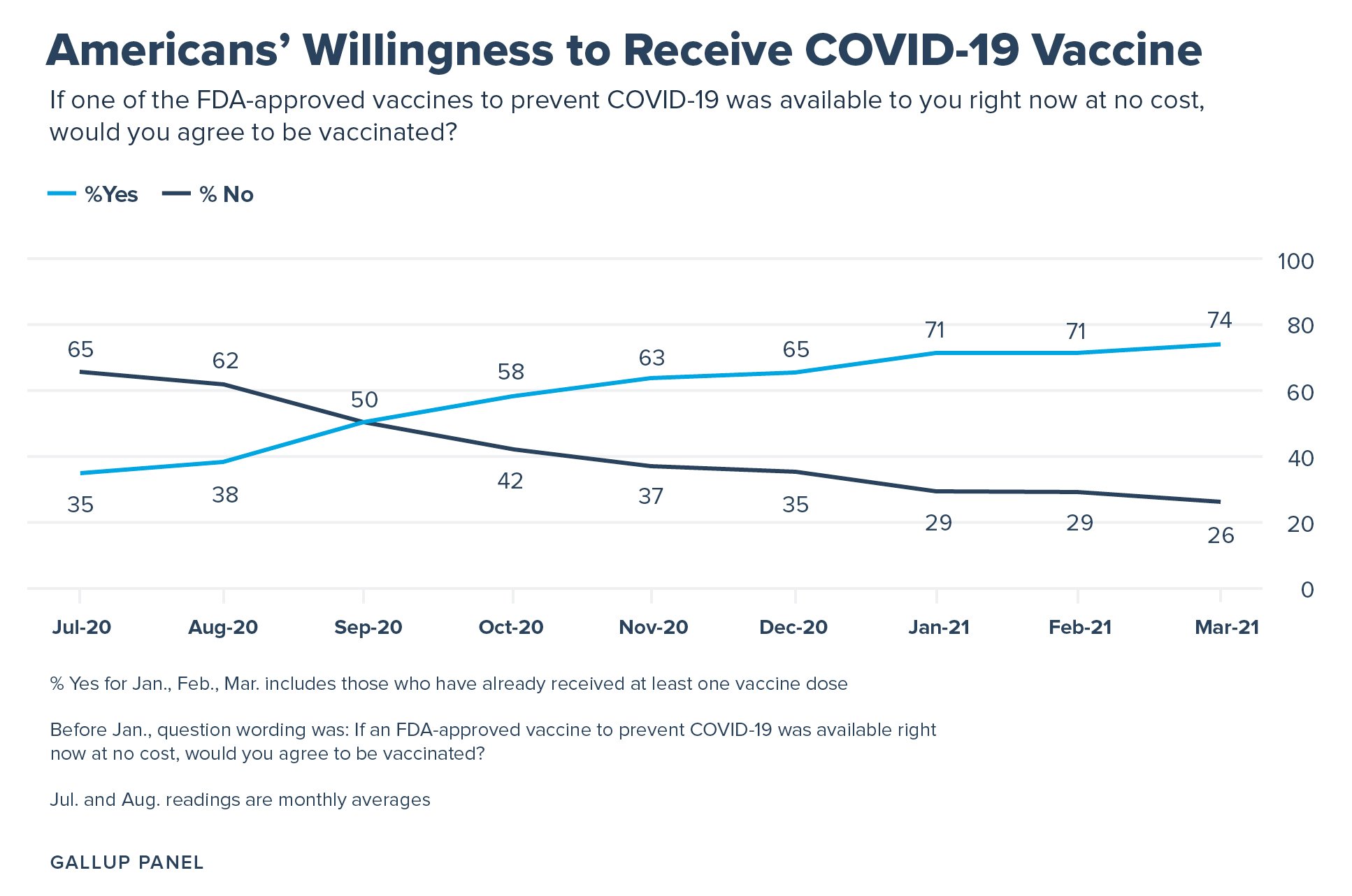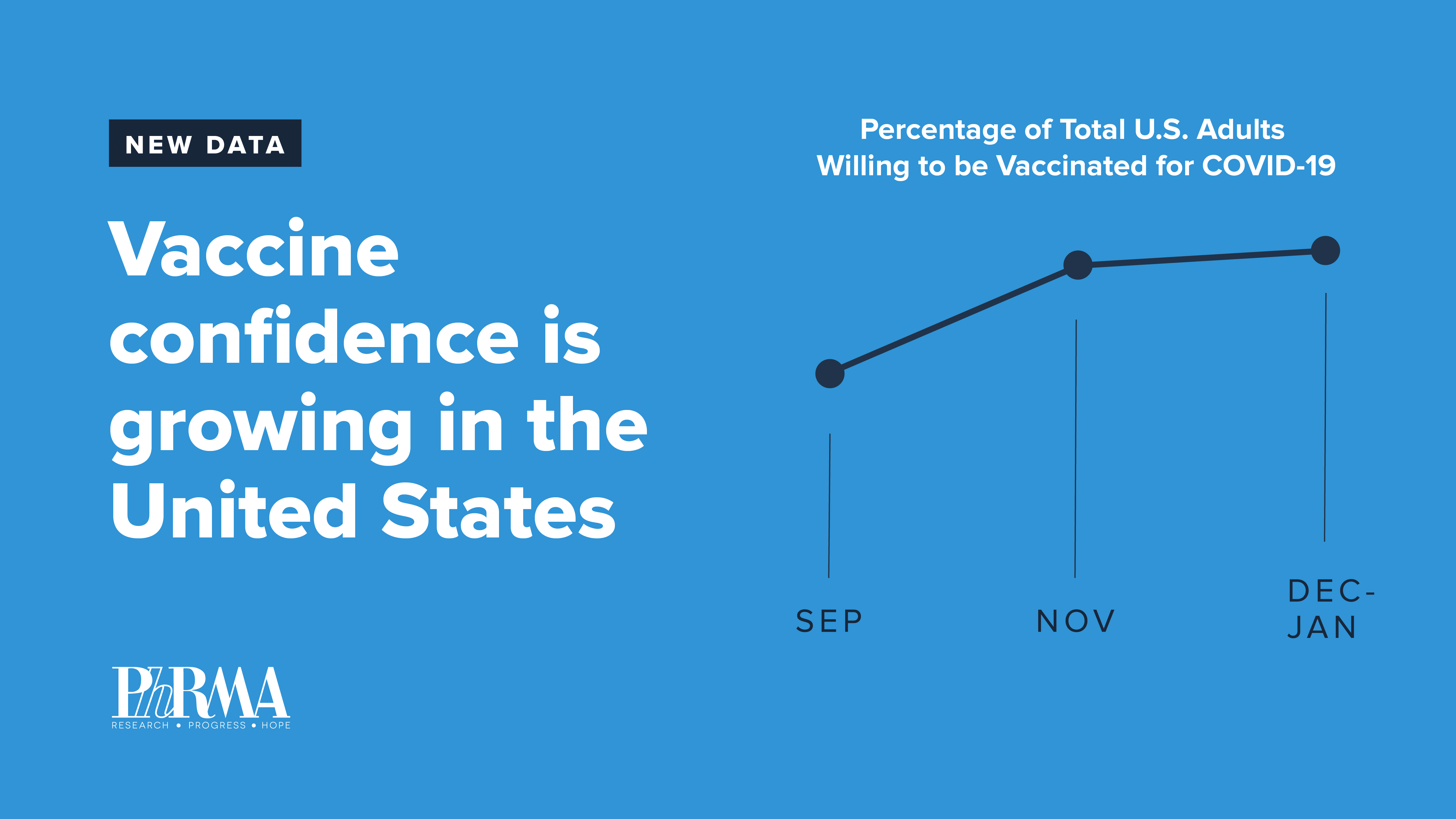According to researchers writing in The Lancet, we need a majority of Americans to have the confidence to get vaccinated for COVID-19 if we are going to be effective in moving the United States toward population-level control of viral spread. As Dr. Anthony Fauci has noted, “If you have a vaccine that is highly effective and not enough people get vaccinated, you’re not going to realize the full, important effect of having a vaccine.”
The good news is a growing majority of Americans are expressing COVID-19 vaccine readiness. The increase in confidence follows news about the first two COVID-19 vaccines confirmed with over 95% efficacy and the subsequent emergency use authorizations (EUA) granted by the U.S. Food and Drug Administration (FDA) for administration of the vaccines to patients.
Recent opinion research conducted by PhRMA[1], Gallup, Ipsos and others confirms this trend, with almost two-thirds of the U.S. public expressing willingness to get a vaccine if one were available to them today. Our most recent tracking survey, conducted with Morning Consult, shows 65% readiness for a vaccine, a 5-point increase from October. Gallup reports the same percentage and Ipsos shows an 8-point confidence boost of late, with 60% overall readiness. The PhRMA poll noted above also shows an 18-point increase in the number of Americans who say they will take a vaccine “right away” (45%, up from 27%).
Another big story in Gallup’s vaccine confidence numbers is the recent change by key subgroups. We have long seen significant differences in attitudes by gender, race, income, education and political party affiliation. Notably, the confidence gap has widened between Democrats (83%, up 8 points since December) and Republicans (45%, down 5 points), as well as between those with a 4-year college degree (77%, up 9 points) and those without (60%, down 1 point). The gender and race gaps, however, have closed over the past month to single digits (3 points and 5 points, respectively).

In line with these numbers is a growing appreciation for the significant value COVID-19 vaccines provide. In our survey noted above, 72% of American voters agree (39% strongly) that vaccines are key to ending the pandemic, and the public widely recognizes that vaccines will not only help save lives (62% likely to happen after a vaccination becomes available) but also restore core aspects of our day-to-day living, including the re-opening of schools (62% likely), businesses (61% likely) and restaurants (58% likely). Recent public polling reinforces theses trend with the Axios-Ipsos Coronavirus Index showing new urgency in plans to be vaccinated, and Pew Research linking intent to be vaccinated to confidence in biopharmaceutical research and development (R&D).
As the biopharmaceutical industry continues to study new and ongoing vaccine candidates through clinical trials, continued education will be critical to recognizing the benefits of the vaccines. We also know there continues to be several important questions from the public about these vaccines. It is critical all health care stakeholders come together to share open, honest and transparent information to help instill confidence.
For more information about the COVID-19 vaccine development, visit https://phrma.org/coronavirus and https://www.cdc.gov/vaccines/covid-19/ or your local health authority’s webpage for information about the ongoing vaccination campaign.
[1] PhRMA Tracking Poll with Morning Consult, January 6-9 2021 (n=1992) registered voters; October 2-4, 2020 (n=1983 registered voters)




